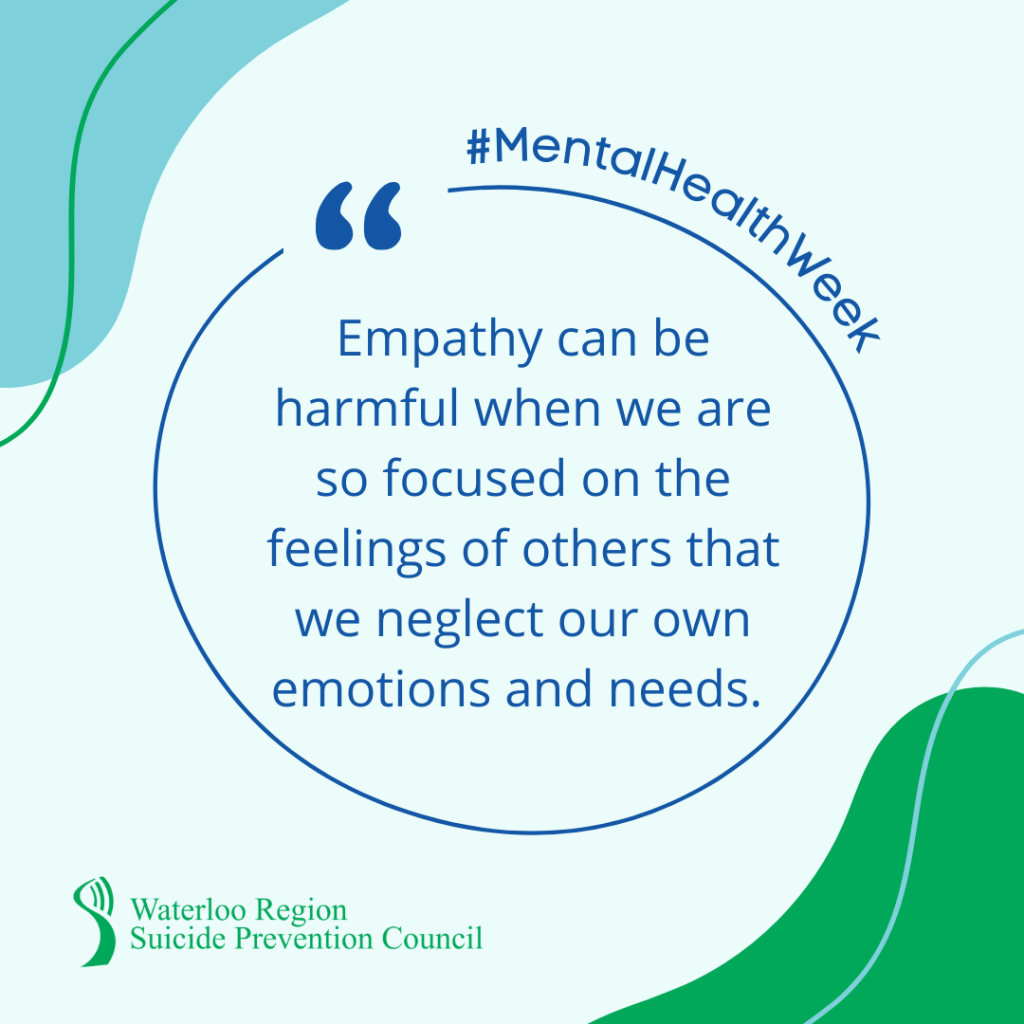This post is part of our #MentalHealthWeek series on empathy and suicide prevention. To view the entire series, click here.
Empathy, Burnout, and Boundaries
This #MentalHealthWeek we have been discussing empathy and how it can be used to help prevent suicide and reduce the impact of suicide in our communities. For our final post this week, we wanted to discuss empathy and boundaries, because sometimes having too much empathy can be harmful for our own mental health and wellbeing. This blog post will discuss how empathy can become toxic, how to identify empathy fatigue, and how you can use boundaries to prevent empathy fatigue from occurring.
How Much Empathy is Too Much?
There is no single answer to the question, “how much empathy is too much?”. However, empathy can become harmful when we are so focused on the feelings of others that we neglect our own emotions and needs.
Have you ever felt drained or apathetic after a day of reading overwhelmingly bad news? This could be an example of a time when having too much empathy led to feelings of exhaustion or helplessness. This is also known as empathy fatigue or burnout.

Other symptoms of empathy fatigue include:
- Feelings of hopelessness
- Stress-related headaches
- Insomnia
- Changes in appetite
- Becoming depressed, shutting down or no longer feeling like you care.
Preventing Empathy Fatigue and Burnout
An important way to prevent empathy fatigue is to take care of ourselves so that we can help to take care of others. For example, we should ensure that we are eating well, exercising, and managing our own stress.
Another way to prevent empathy fatigue is to set boundaries. It is important to be honest with yourself about the amount of support that you can provide to others. Recognize that your capacity to demonstrate empathy and provide support may fluctuate on a daily or weekly basis, and this is okay.
Some phrases you can use if someone reaches out for support and you the lack the capacity to respond empathetically, are:
- “I appreciate that you reached out to me, and I know how hard that might have been. Unfortunately, I am struggling with things myself, and don’t feel confident I can provide the support you need right now. Do you want to hangout and talk tomorrow, when I can give you my full attention?”
- “Your thoughts and feelings are important to me. However, I don’t think I can provide the support that you need right now, and I want to ensure you get that support. Do you have someone else you can reach out to right now?”
It is also important set boundaries with the content that we consume, including the news, television, and social media. If you struggle with the impact social media has on your wellness, check out this resource from The Mental Health Commission of Canada for further suggestions.
As always, you can view the resources below for more information on empathy, boundaries, and preventing empathy fatigue.
Resources for further learning:


